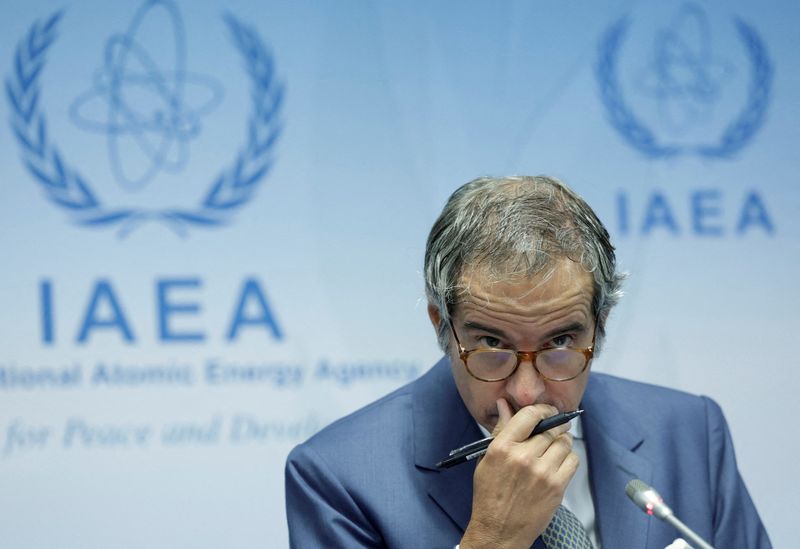IAEA’s Grossi hopes Iran’s capping of highly enriched uranium stock holds
2024.11.20 09:29
By Francois Murphy
VIENNA (Reuters) – U.N. nuclear watchdog chief Rafael Grossi said on Wednesday he hopes Iran’s move towards capping its stock of uranium just short of weapons grade will hold, as his agency’s board was set to pass a Western-drafted resolution that could derail that.
Iran has taken steps towards no longer expanding its stock of uranium enriched to up to 60%, close to the roughly 90% of weapons-grade, the International Atomic Energy Agency said in a report to member states on Tuesday ahead of a meeting of the IAEA’s 35-nation Board of Governors that started on Wednesday.
Grossi said he brokered the step in Iran last week, but diplomats said it was conditional on Western powers abandoning their push for a resolution criticising Iran. Britain, France, Germany and the United States are pressing ahead regardless and formally submitted the text to the Board on Wednesday.
“I think this is a concrete step in the right direction,” Grossi told a news conference, referring to the move towards a freeze, which would limit the amount of uranium Iran has enriched to up to 60% at enough, if enriched further, for four nuclear weapons, according to an IAEA yardstick.
The resolution follows up on the last one passed in June, which only Russia and China opposed, criticising Iran for its lack of cooperation with the IAEA and requesting that Grossi produce a “comprehensive” report on Iran’s activities.
Diplomats say the aim is to pressure Iran into negotiations to agree fresh restrictions on its nuclear activities before those in a 2015 deal with major powers expire in October, even though that deal unravelled after then-President Donald Trump pulled the United States out of it in 2018.
It is the last quarterly IAEA Board meeting before Trump takes office in January, and it remains far from clear whether he would be open to such negotiations.
“I requested the Islamic Republic of Iran … if possible to stop increasing the stockpile of 60% uranium. And I have to say that this request of mine was accepted by Iran,” Grossi said in a speech to the Board before his news conference.

He did not give a direct answer when asked if that meant Iran had made a commitment, and he said that in his talks Iran’s move was not conditional on there being no resolution.
Iran tends to bristle at criticism such as resolutions and has responded in the past by escalating its nuclear activities or reducing the IAEA’s oversight.








